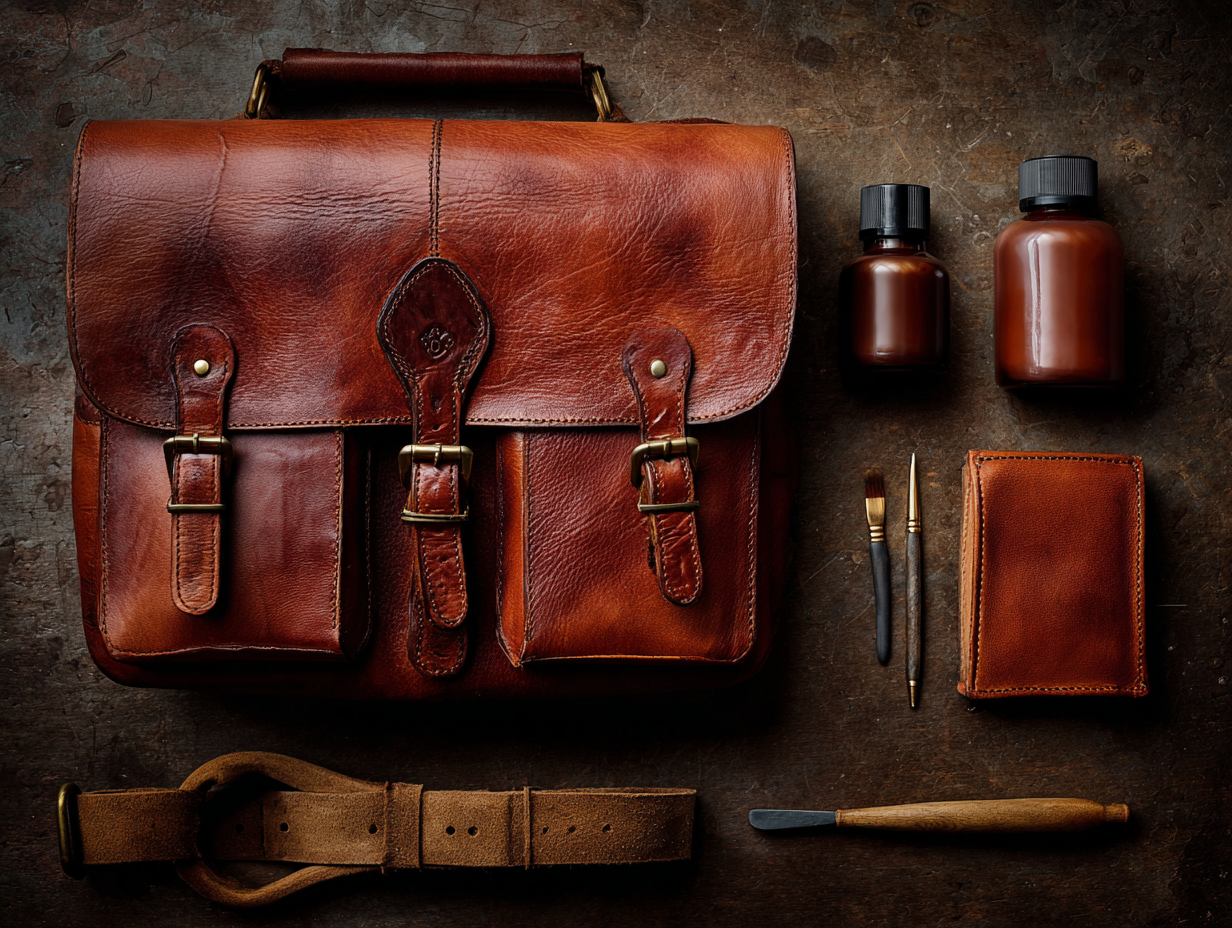
KNOWLEDGE BASE
Leather
Care Guides
Everything you need to know about caring for and choosing your leather goods
MAINTENANCE
Caring for Full-Grain Leather
Full-grain leather is a living material that develops character over time. With proper care, your piece will last decades.
Daily Use & Break-In
Your leather will be stiff at first—this is normal. Use it daily and it will soften and conform to your habits. The natural oils from your hands will help condition it. Expect 2-4 weeks for full break-in.
Cleaning
For light dirt, wipe with a slightly damp cloth. For deeper cleaning, use a leather cleaner designed for full-grain leather. Avoid harsh chemicals, soaps, or alcohol-based products—they'll dry out and damage the leather.
Conditioning
Condition 2-4 times per year with a quality leather conditioner (we recommend Lexol or Obenauf's). Apply a thin, even coat with a soft cloth, let it absorb for 20 minutes, then buff off excess. Don't over-condition—less is more.
Storage
Store in a cool, dry place away from direct sunlight and heat sources. If storing long-term, stuff bags with acid-free paper to maintain shape. Never store in plastic—leather needs to breathe.
What to Avoid
- ✗Prolonged exposure to direct sunlight (fading)
- ✗Soaking in water or leaving wet (use damp cloth only)
- ✗Heat sources like radiators or car dashboards
- ✗Chemical cleaners, saddle soap, or shoe polish
- ✗Storing in humid or damp environments
Wet Leather?
If your leather gets wet, blot (don't rub) with a clean cloth and let it air dry naturally at room temperature. Never use a hair dryer or place near heat. Once dry, condition it to restore moisture.
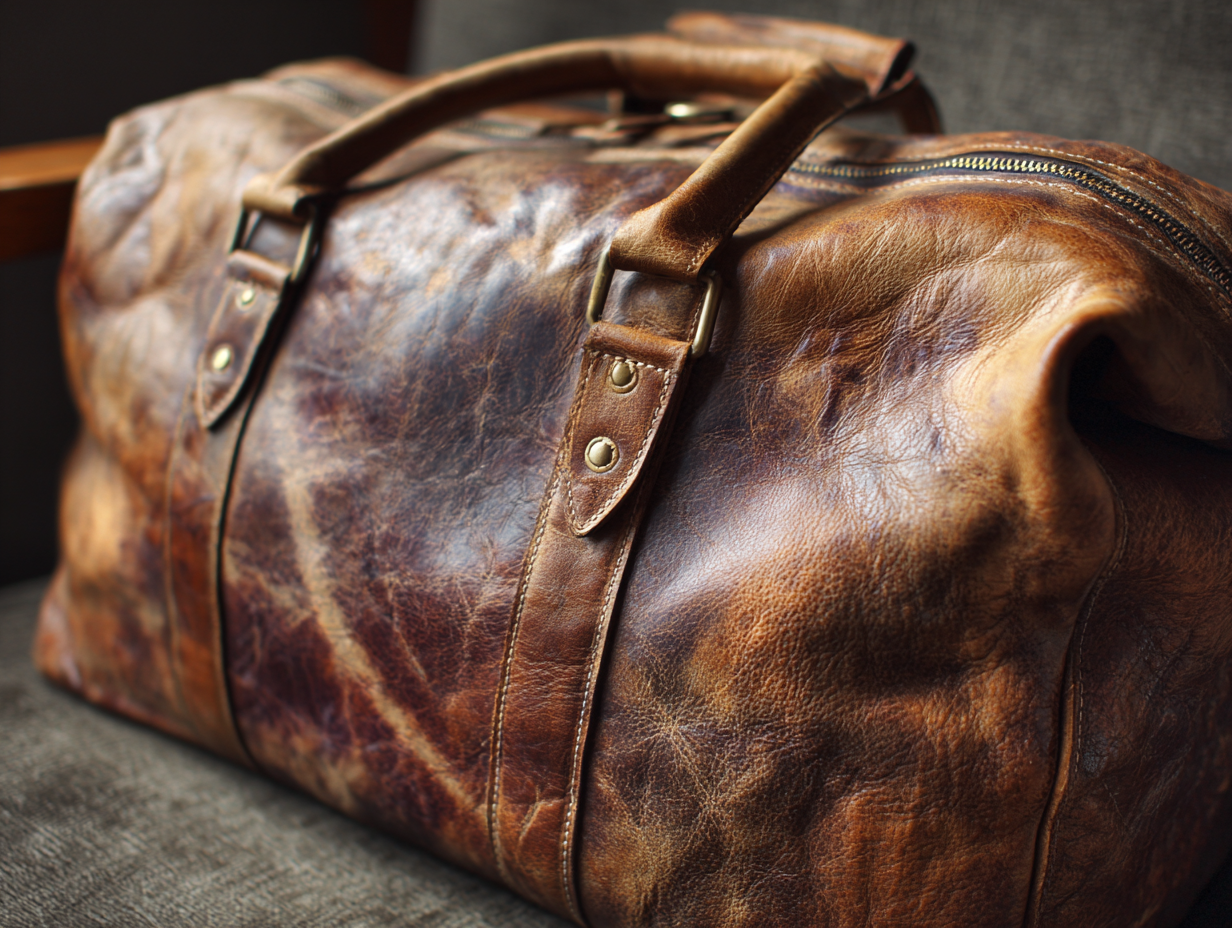
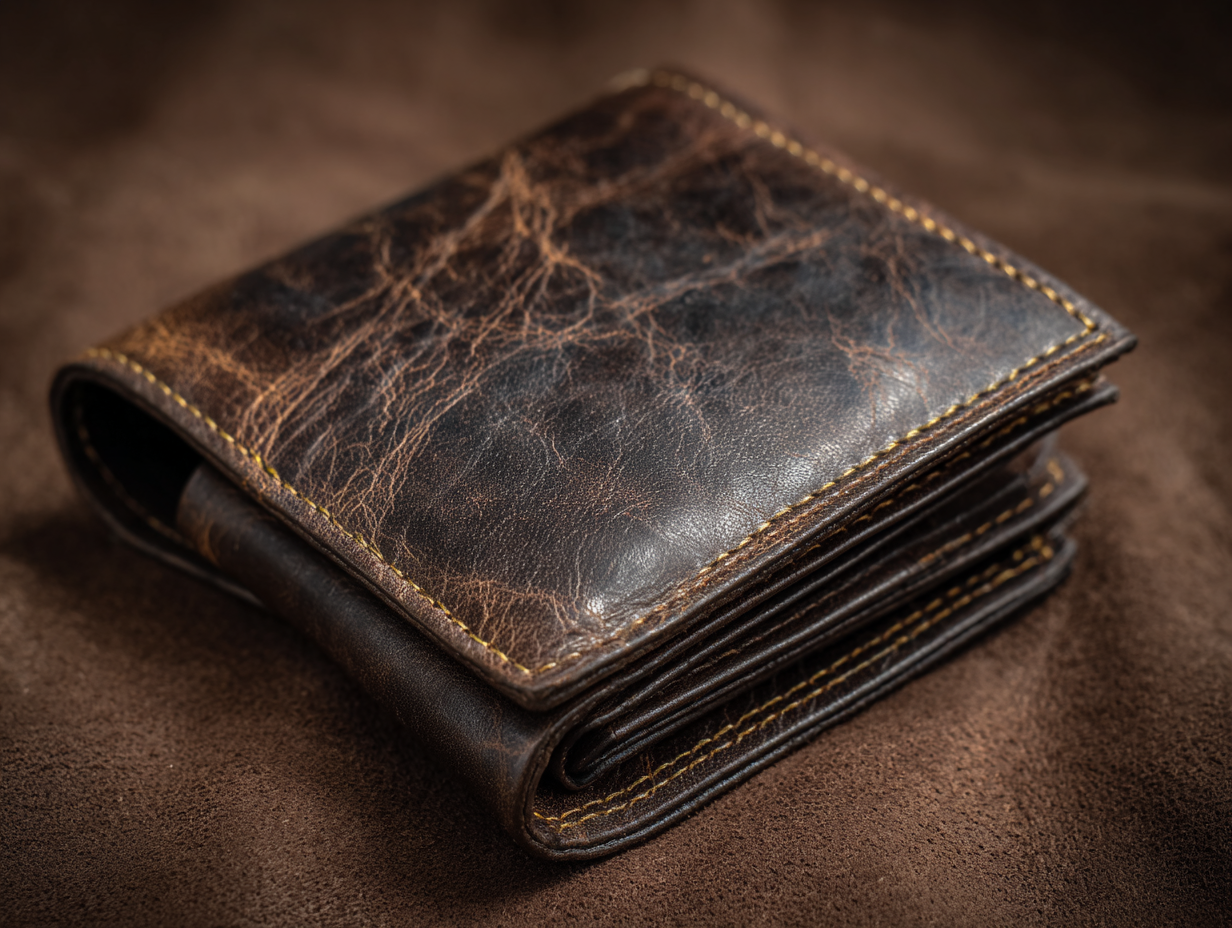
THE AGING PROCESS
How Full-Grain
Leather Ages
Full-grain leather is the only grade that develops a rich, beautiful patina over time. This natural aging process is what makes each piece uniquely yours.
As you use your leather goods, natural oils from your hands, sunlight exposure, and everyday wear create subtle color changes and a smooth, burnished surface. High-contact areas develop darker tones, while creases and folds add character.
This patina can't be faked or rushed—it's the authentic mark of quality leather and real life lived. In 5, 10, or 20 years, your piece will tell the story of everywhere it's been with you.
Lower grades of leather (top-grain, genuine leather, bonded) can't develop patina because their natural surface has been removed. They just wear out.
SIZING
Belt Sizing Guide
How to Measure
Method 1: Use Your Pant Size
The simplest way—order a belt 2 inches larger than your pant waist size. If you wear 34" pants, order a 36" belt.
Method 2: Measure an Existing Belt
Lay your favorite belt flat and measure from the buckle's prong hole to the hole you currently use. This is your belt size.
Method 3: Measure Your Waist
Measure around your waist where you wear your pants, then add 2 inches. Measure over the clothes you'll typically wear with the belt.
Quick Calculator
Sizing Chart
| Pant Size | Belt Size |
|---|---|
| 28-29" | 30-32" |
| 30-31" | 32-34" |
| 32-33" | 34-36" |
| 34-35" | 36-38" |
| 36-37" | 38-40" |
| 38-39" | 40-42" |
| 40-41" | 42-44" |
| 42-43" | 44-46" |
Custom sizing available: Need a specific length? Just note your requirements in the order comments and I'll make it to your exact specs.
Belt hole spacing: All belts have 5 holes spaced 1 inch apart, giving you 2 inches of adjustment.
Still unsure? When in doubt, size up. It's easier to punch an extra hole than to stretch a belt.
CHOOSING
Wallet Style Guide
Each wallet style serves a different carry preference. Here's how to choose.
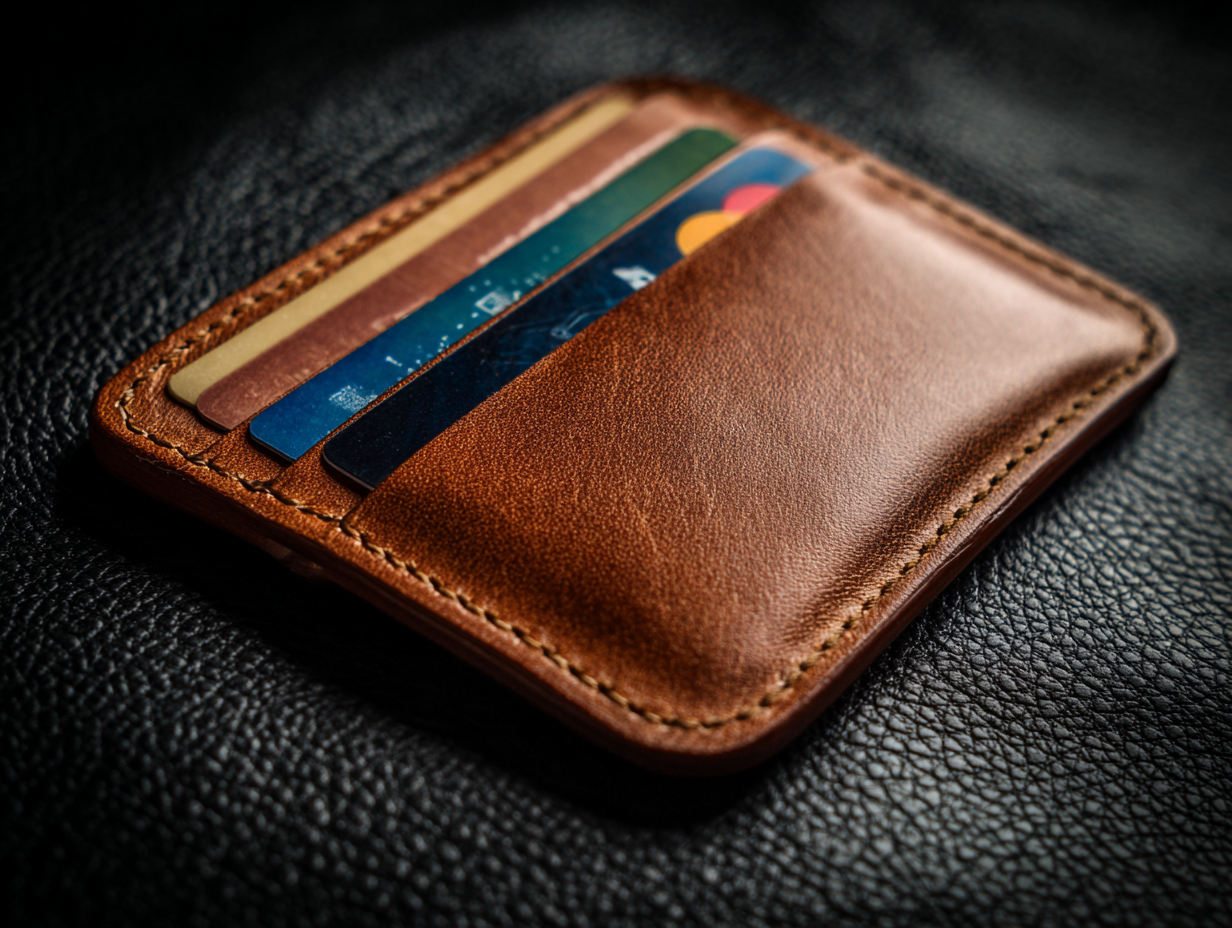
Bifold Wallet
Capacity: 8-12 cards
Pockets: 2 bill slots, 1-2 hidden pockets
Best For: Front or back pocket carry
The classic. Folds in half with card slots on both sides. Perfect balance of capacity and slimness.
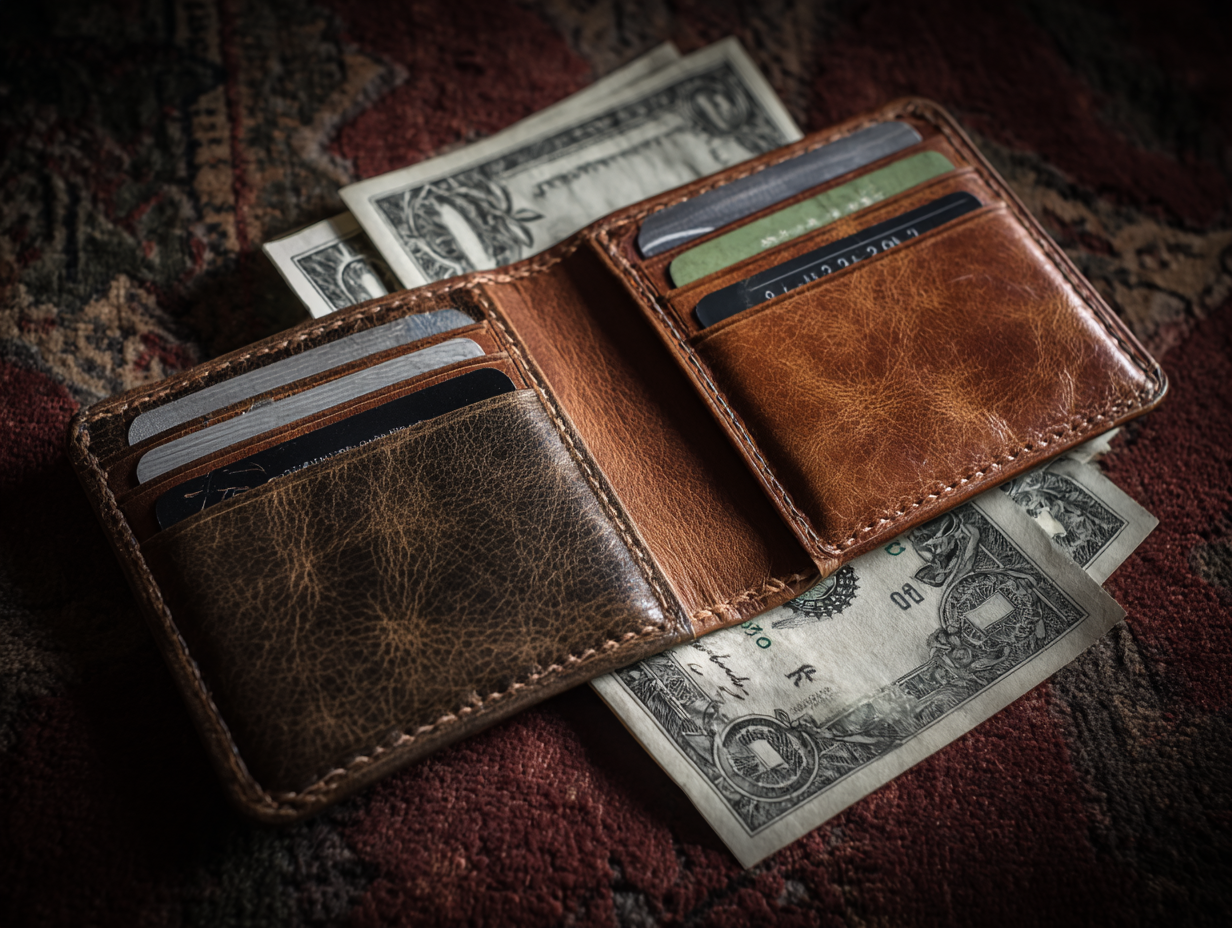
Trifold Wallet
Capacity: 12-18 cards
Pockets: 3 bill slots, multiple hidden pockets
Best For: Maximum organization
Folds in thirds for maximum capacity. Best for those who carry many cards and need organization.
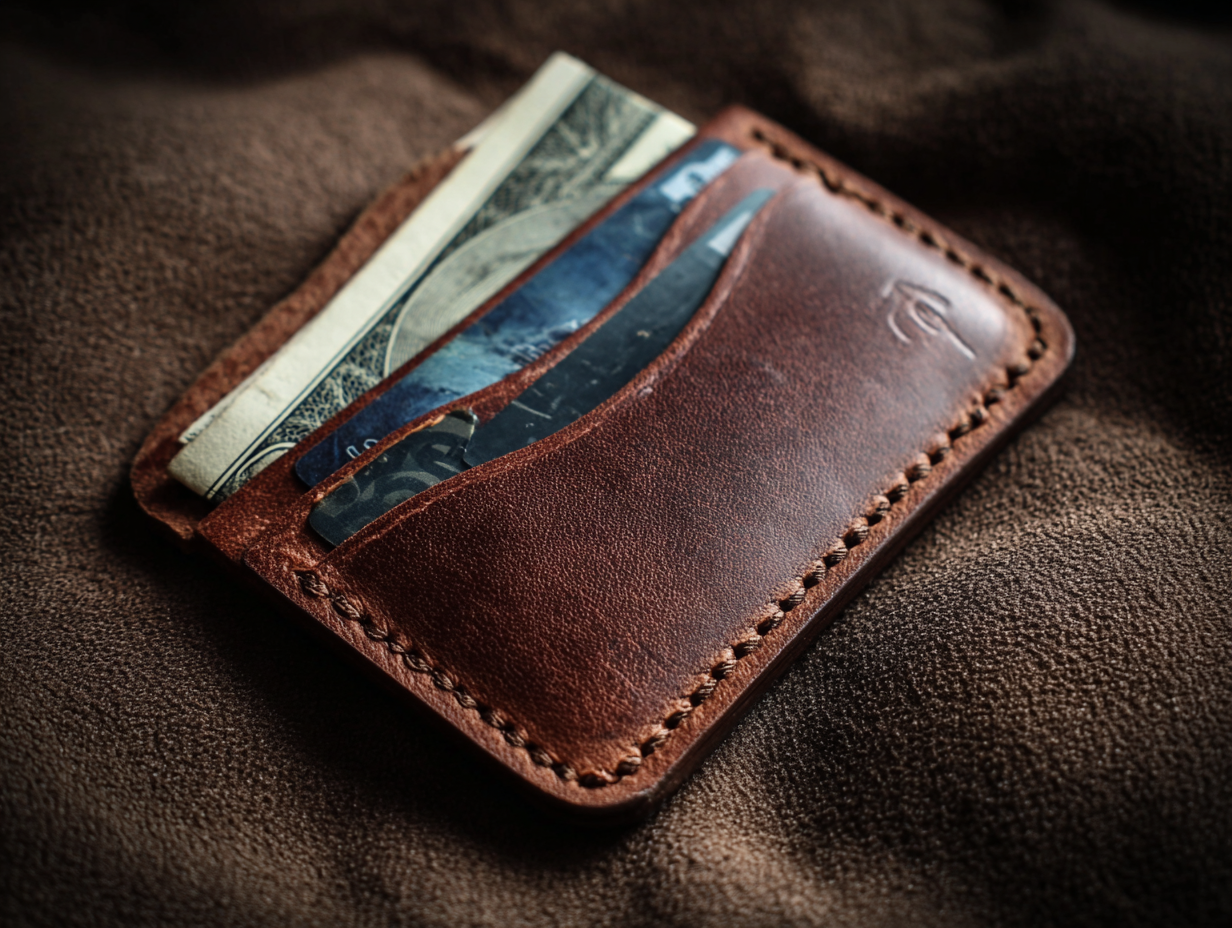
Minimalist Card Holder
Capacity: 4-6 cards
Pockets: 1 cash slot
Best For: Front pocket carry
Ultra-slim design for essentials only. Forces you to carry what you actually need.
QUESTIONS
Frequently Asked Questions
How long will my leather goods last?
With proper care, decades. I regularly see pieces 20+ years old still in daily use. The hand-saddle-stitching is the key—unlike machine stitching that can unravel if one stitch breaks, saddle stitching creates interlocking bonds that hold even if the thread is cut. The full-grain leather itself will outlast you if maintained.
What's the difference between full-grain and top-grain leather?
Full-grain is the top layer of the hide with the natural grain intact—no sanding or buffing. It's the strongest, most durable grade and the only one that develops a rich patina. Top-grain has been sanded down to remove imperfections, then stamped with an artificial grain. It's thinner, weaker, and can't develop true patina. I only use full-grain.
Can I get my item repaired if something happens?
Absolutely. If the stitching ever fails (which is rare), I'll repair or replace it free of charge—that's my lifetime guarantee. For other repairs or modifications, contact me and we'll work something out. These pieces are built to be repaired, not replaced.
How do I know what size belt to order?
Simplest method: order 2 inches larger than your pant size. Wear 34" pants? Order a 36" belt. You can also measure an existing belt from the buckle to your current hole, or use our sizing calculator above. When in doubt, size up—I can easily punch an additional hole for you.
Will the leather stretch?
Yes, leather is a natural material and will stretch slightly with use, especially in high-stress areas like belts. This is normal and expected. A properly sized belt will feel slightly snug at first and relax to a perfect fit after a few weeks of wear.
What if the color doesn't match the photos exactly?
Natural leather varies in tone and grain pattern—that's part of its beauty. Each hide is unique. The photos represent the general color family, but your piece may have slight variations in shade or natural markings. These characteristics are features, not flaws.
Do you make custom pieces?
Yes! I take on custom projects regularly. Whether you need specific dimensions, custom initials, or a completely unique design, reach out through the Custom Work page and we'll discuss your vision.
How long does shipping take?
In-stock items ship within 2-3 business days via USPS Priority Mail (2-3 days) or First Class (3-5 days). Custom orders typically take 2-4 weeks depending on complexity, plus shipping time. I'll give you an estimated completion date when you order.
What's your return policy?
If you're not completely satisfied, return it within 30 days for a full refund (minus shipping). Custom/personalized items are final sale. See our full return policy at checkout.
Ready to Invest in Quality?
Browse our collection of handcrafted leather goods, each made to last generations.
Shop the Collection